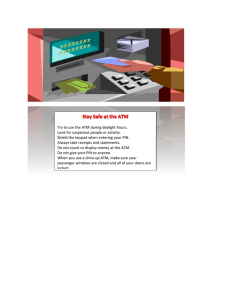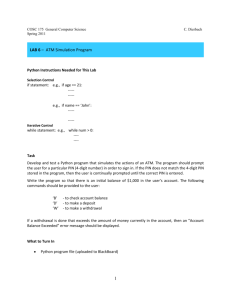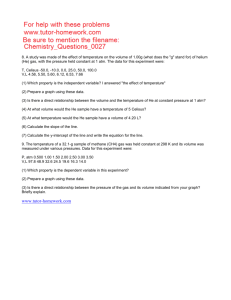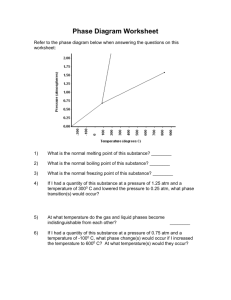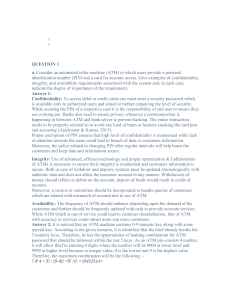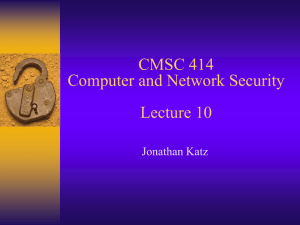Safe and
advertisement
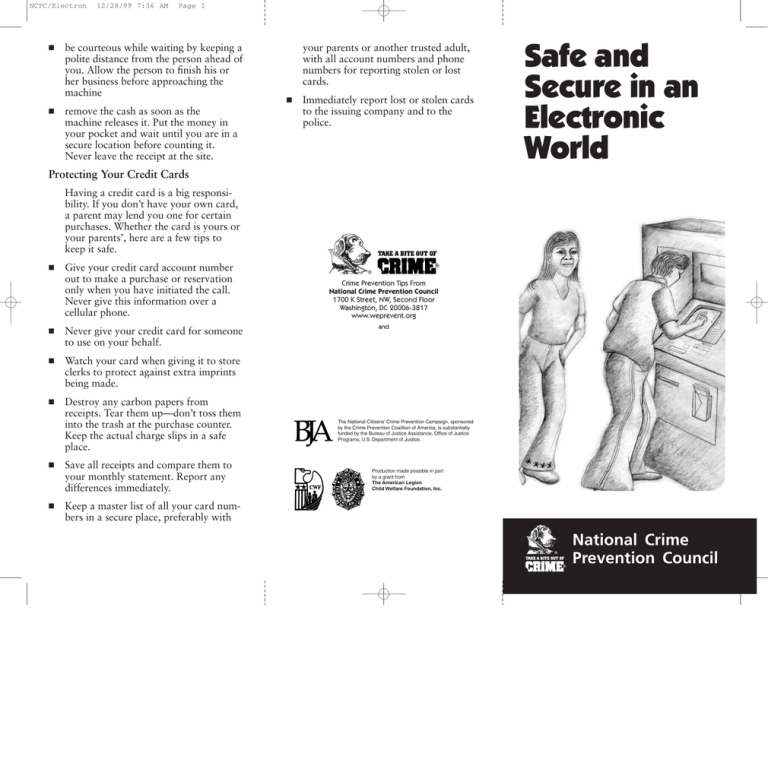
NCPC/Electron 12/28/99 7:36 AM Page 1 ■ be courteous while waiting by keeping a polite distance from the person ahead of you. Allow the person to finish his or her business before approaching the machine ■ remove the cash as soon as the machine releases it. Put the money in your pocket and wait until you are in a secure location before counting it. Never leave the receipt at the site. your parents or another trusted adult, with all account numbers and phone numbers for reporting stolen or lost cards. ■ Immediately report lost or stolen cards to the issuing company and to the police. Safe and Secure in an Electronic World Protecting Your Credit Cards Having a credit card is a big responsibility. If you don’t have your own card, a parent may lend you one for certain purchases. Whether the card is yours or your parents’, here are a few tips to keep it safe. ■ Give your credit card account number out to make a purchase or reservation only when you have initiated the call. Never give this information over a cellular phone. ■ Never give your credit card for someone to use on your behalf. ■ Watch your card when giving it to store clerks to protect against extra imprints being made. ■ Destroy any carbon papers from receipts. Tear them up—don’t toss them into the trash at the purchase counter. Keep the actual charge slips in a safe place. ■ Save all receipts and compare them to your monthly statement. Report any differences immediately. ■ Keep a master list of all your card numbers in a secure place, preferably with Crime Prevention Tips From National Crime Prevention Council 1700 K Street, NW, Second Floor Washington, DC 20006-3817 www.weprevent.org and The National Citizens’ Crime Prevention Campaign, sponsored by the Crime Prevention Coalition of America, is substantially funded by the Bureau of Justice Assistance, Office of Justice Programs, U.S. Department of Justice. Production made possible in part by a grant from The American Legion Child Welfare Foundation, Inc. National Crime Prevention Council NCPC/Electron 12/28/99 7:36 AM Page 2 The most common way thieves go about getting this information is by stealing your wallet. However, other ways include looking over your shoulder at ATMs and phone booths to capture your PIN number; stealing mail from your mailbox; digging though your discarded trash; and fraudulently ordering a copy of your credit record. And before you think, “I don’t have a credit record,” think again. As soon as you open a bank account, get a credit card or a loan, or start a store account, you’ve got a credit record. E nterprising criminals can gather enough information about you through the debris of everyday electronic transactions to pretend that they are you. Once this happens, they can gain access to all your financial information. remembering them. Don’t write your password on your notebook or stick it on a Post-it® note in your locker. Pay Particular Attention When Using ATM Cards and Credit Cards One of many conveniences of a checking account is the debit or automated teller machine (ATM) card. This card allows you to get money from your account through a machine 24 hours a day. A money machine is useful, but there are a few precautions you should take. To prevent this from happening to you, ■ ■ don’t give out your social security number. If your state allows it, use a number other than your social security number on your driver’s license. Just like passwords on the computers, a PIN is a confidential code issued to you that lets you have access to your account. Memorize your PIN, and don’t give it to anyone, not even family members or bank employees. The fewer people who have access to your PIN, the better. tear into small pieces all credit card offers, ATM receipts, bank statements, credit card statements, and other printed materials that have your account numbers on them. Use a paper shredder if possible. ■ don’t send personal information over the Internet, through e-mail, or over cellular phones. ■ don’t use passwords that are obvious— names (yours or those of your friends, relatives, or pets), birth date, even street addresses. The best passwords mix numbers with upper and lowercase letters. A password that is not found in the dictionary is even better because there are programs that will try every word in the dictionary in an effort to crack your code. ■ Protecting Your Personal Identification Number (PIN) avoid break-ins by changing your password regularly and memorizing it. If you have several, set up a system for Never write your PIN on your ATM card or write it on a piece of paper and place it in your wallet. If your wallet and card are lost or stolen, someone will have everything they need to take all the money from your account. Using the ATM Safely An ATM card should be treated like cash. When using the ATM machine, select one that’s code-door or doubledoor secured and visible to street traffic. Use when others are around. Also, ■ be aware of others waiting behind you ■ position yourself in front of the keyboard to prevent anyone from seeing your PIN
